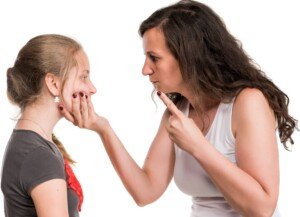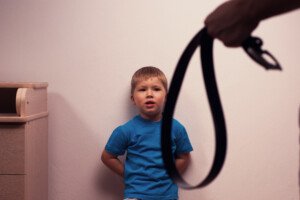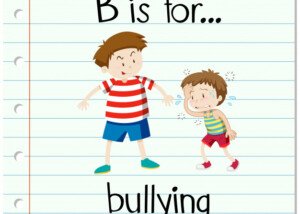
Don’t assume that the school bully is spoiled and entitled at home; instead assume that he or she is being bullied by a parent or older sibling.
If you’re a parent, do you know what things you might be doing that could cause your child to become a bully?
“Although bullies may have particular temperamental profiles, some bullying behavior is learned,” says Rona Novick, PhD, who developed the BRAVE bully prevention program.
A clinical psychologist, Dr. Novick has worked with schools nationally on the issue of bullying, and is director of the Fanya Gottesfeld Heller Doctoral Program at Yeshiva University, NY.
Parents Don’t Deliberately Teach Bullying to Their Children
Dr. Novick explains, “Parents do not need to give direct ‘lessons’ in bullying; they teach by example and through errors of omission.”
Certainly you’ve witnessed a parent having an angry meltdown in the presence of young children, or perhaps slugging down on the counter at a store, leaning towards the employee and angrily demanding a refund.
This teaches that “bullying is not only okay, but the way to do business when, in eye- or earshot of their children, they use power-assertive tactics to get what they want.”
These tactics can be imposed on sales clerks, a teacher, neighbor, solicitor at the door, “but whenever a parent abuses their power to get their way, they teach bullying is the way to go.”
Parents can also, though unknowingly, encourage bullying behavior by turning a blind eye to bullying, even in their own families.
Children interpret a neutral or turn-the-other-way response as approval of bullying, says Dr. Novick.
“So a non-response to an older sibling bullying younger, or to someone who cuts in line, sends the message to children that this type of behavior meets with our approval.
“Parents need not intervene in every case; they simply need to communicate their disapproval.
“They don’t need to tackle a line cutter and move him to the back of the line; they can simply say to their children, quietly, ‘We don’t do that,’ or, ‘That’s a rude, unfair thing to do.’”
Do parents of bullies typically abuse their children?

Shutterstock/Paul Biryukov
“Children who are abused by their parents rarely bully others – abused children are usually timid and fearful,” says Dr. Novak.
“While many abusing adults were, in fact, abused as children — during their vulnerable childhood years abused children usually appear timid and fearful.”
However, Dr. Novick notes that there actually is some research that finds that parents of bullies may use more authoritarian styles of discipline.
“What is more likely, is that children who bully have witnessed their parents use bullying tactics on others.
“They may see Mom or Dad abuse their power to get their way with waiters, dry cleaners, teachers, neighbors or other family members.”
When parents bully each other, this sends the message that this behavior is acceptable, says Dr. Novick.
Another Take on Abused Kids Being Bullies at School
“Exposure to child abuse and domestic violence, parental use of corporal punishment, poor parent-child communication, and high levels of family conflict are risk factors for bullying behavior,” explains Rashmi Shetgiri, MD, MSHS, medical director at Pediatric Primary Care Clinic in Los Angeles whose research interests include bullying and youth violence prevention.
She recalls a study that showed that fathers who were bullies in their youth were more likely to have children who were bullies.
Some youth bullies indeed come from homes in which the norm is characterized by aggressive or domineering behavior in the parents, which may manifest as physical or mental abuse, spousal abuse, striking the kids out of anger, and literally bullying them around.
“These children may internalize this as acceptable forms of interaction with others, and may believe bullying is, therefore, an acceptable way to interact with their peers,” explains Dr. Shetgiri.
 Dr. Novick is recognized for her expertise in behavior management and child behavior therapy. She has published scholarly articles on school applications of behavior management, children and trauma, and bully prevention in schools.
Dr. Novick is recognized for her expertise in behavior management and child behavior therapy. She has published scholarly articles on school applications of behavior management, children and trauma, and bully prevention in schools.
 Dr. Shetgiri is particularly interested in prevention of violence among Latino youth, the implementation of primary-care-based bullying and violence prevention strategies, and health outcomes for children exposed to violence and abuse.
Dr. Shetgiri is particularly interested in prevention of violence among Latino youth, the implementation of primary-care-based bullying and violence prevention strategies, and health outcomes for children exposed to violence and abuse.
 Lorra Garrick has been covering medical, fitness and cybersecurity topics for many years, having written thousands of articles for print magazines and websites, including as a ghostwriter. She’s also a former ACE-certified personal trainer.
Lorra Garrick has been covering medical, fitness and cybersecurity topics for many years, having written thousands of articles for print magazines and websites, including as a ghostwriter. She’s also a former ACE-certified personal trainer.


























